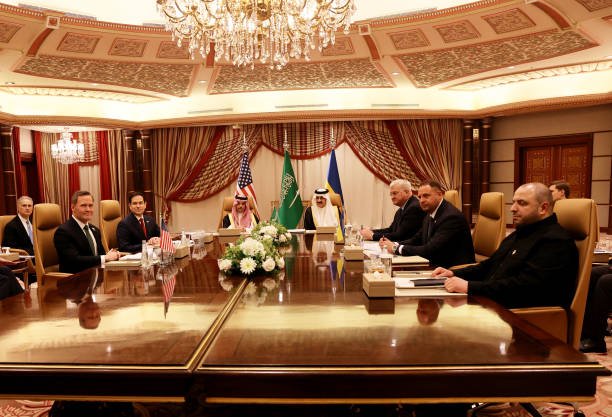UPDATE:
American and Ukrainian officials have proposed a 30-day ceasefire in Ukraine’s three-year war, emphasizing that the decision now rests with Russia. Following talks in Jeddah involving U.S. Secretary of State Marco Rubio and Ukrainian counterparts, both sides agreed in principle to the ceasefire, aiming to use it as a foundation for broader peace negotiations. Ukrainian President Volodymyr Zelenskyy described the discussions as constructive, expressing hope for de-escalation. However, Russia has yet to respond, with Kremlin spokesperson Dmitry Peskov stating that Moscow is reviewing the proposal and awaiting direct communication from Washington.
Despite some optimism, significant challenges remain. Russia has a history of violating ceasefires, and President Vladimir Putin has shown no willingness to make concessions, instead suggesting terms that would heavily favor Russia. Western leaders like French President Emmanuel Macron and British Prime Minister Keir Starmer have urged Russia to agree to the ceasefire, calling it a critical step toward peace. However, hardliners in Moscow have expressed skepticism, fearing the ceasefire could allow Ukraine to regroup militarily. The proposal’s success hinges on Russia’s response and the establishment of trusted mechanisms to monitor compliance.

